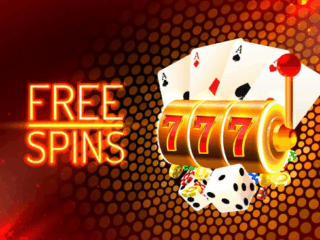
Poker is far more than just a game of chance; it’s a mental challenge that requires sharp thinking and calculated decisions. To succeed, players must rely on strategic thinking, which enhances their ability to assess risks, calculate probabilities, and analyze their opponents’ behavior. This process strengthens mental resilience as players face high-pressure situations where emotional control is essential. Insights from Cornell University highlight how game theory in poker encourages a new way of thinking about the game, emphasizing strategic decision-making over pure luck.
Remaining calm under pressure is a key skill in poker. Players must think clearly, set aside emotions, and base their decisions on logic rather than impulses. Poker also develops focus, as staying attentive to the game helps in spotting opportunities and avoiding costly mistakes. Additionally, the patience required in poker teaches players to wait for the right moment to act, sharpening their ability to manage risk effectively. Ultimately, poker hones vital mental skills like focus, patience, and risk assessment, all of which can be applied in various life situations.
Practicing Poker Online to Enhance Mental Skills
Playing poker online, including on sweepstakes casino platforms, offers a great way to build mental skills without financial risk. These platforms allow players to focus on improving their strategies and honing decision-making skills without the pressure of real money. Online poker helps players sharpen quick thinking and strategic planning, especially when faced with unexpected moves from opponents.
Sweepstakes casino platforms provide a relaxed, low-stakes environment where players can test their mental strategies and refine their approach. This practice allows players to develop essential skills, like patience, focus, and adaptability, in a fun and pressure-free setting. For more information on how these platforms can enhance your poker skills, check this page. As a result, players become better equipped to handle real-world challenges, making online poker a useful tool for sharpening mental abilities.
Developing Strategic Thinking in Poker
Poker demands strategic thinking, requiring players to plan moves, assess the game, and watch opponents. This sharpens decision-making and improves logical thinking.
Anticipating Your Opponent’s Moves
Strategic thinking in poker often involves predicting your opponent’s next action. By reading their behavior and patterns, players can develop the following skills:
- Observation: Watching for subtle clues in betting habits or reactions.
- Pattern recognition: Identifying trends in an opponent’s play style.
- Prediction: Estimating the likely next move based on previous rounds.
These skills help players develop a deeper understanding of how opponents act, leading to better strategies.
Adapting to Changing Situations
Poker is unpredictable, and players need to be flexible in their approach. Some key aspects include:
- Quick decision-making: Adjusting plans based on new cards dealt with or unexpected actions.
- Flexibility: Changing strategies when the game takes an unforeseen turn.
- Resilience: Staying mentally tough when faced with challenging shifts in the game.
Adapting to these changes sharpens the ability to stay focused and make smart decisions on the fly.
Managing Risk and Reward
Managing risk and reward is vital in poker, requiring players to:
- Assess risk: Knowing when it’s worth taking a chance.
- Weigh rewards: Calculating if the potential win outweighs the risk.
- Stay disciplined: Avoid impulsive moves when the stakes are high.
This balance of risk and reward builds mental strength, teaching players to make decisions that lead to better outcomes.
Developing Strategic Thinking in Poker
Strategic thinking is vital in poker. Players analyze the game, predict opponents’ moves, and adjust decisions as conditions change, sharpening focus and critical thinking.
Anticipating Your Opponent’s Moves
Reading opponents is an essential part of poker strategy. By observing their betting patterns, behavior, and reactions, players can anticipate what they might do next. This sharpens strategic thinking, as players must continuously adapt and modify their approach based on these observations. Anticipating moves helps players gain an edge in the game, making them more effective in planning their next steps.
Adapting to Changing Situations
Poker is an unpredictable game, and players must be ready to change their strategies quickly. When an unexpected move happens, such as a sudden raise or a surprising hand, successful players adjust their tactics accordingly. This adaptability builds mental flexibility and prepares players to handle unexpected shifts in both poker and real-world situations.
Managing Risk and Reward
Balancing risk with potential rewards is a critical part of poker strategy. Players must evaluate when it’s worth taking a chance and when it’s smarter to fold. This requires mental discipline and the ability to assess situations logically, which in turn builds decision-making skills that are useful in both poker and daily life.
Poker as a Tool for Emotional Control
Poker is not just about strategy and skill; it’s also a powerful tool for building emotional resilience. The unpredictable nature of the game, with its frequent shifts between wins and losses, forces players to confront their emotions head-on. Players learn to handle the frustration of bad hands and the thrill of good ones without letting emotions dictate their next move. Research from Academia points out that self-reflection and self-rumination are key factors in decision-making during online poker, emphasizing the importance of emotional control. This ability to maintain emotional balance can be beneficial in other areas of life where staying composed under pressure is crucial.

The constant pressure in poker games requires players to stay calm and focused, especially in high-stakes situations. Making decisions based on logic rather than emotions is key, and over time, players develop a more disciplined approach to stressful situations. This mental training can lead to improved decision-making outside the game as well.
Furthermore, lengthy poker sessions demand patience and endurance. Players must remain mentally grounded, waiting for the right opportunities instead of acting impulsively. This cultivated patience not only enhances their poker performance but also helps in everyday situations where quick reactions might not yield the best results.
Improving Focus and Concentration with Poker
Poker sharpens the focus by training players to manage attention, block distractions, and handle multiple tasks simultaneously, improving mental agility.
Blocking Out Distractions
Poker trains players to maintain concentration, even when distractions are present:
- Crowded environments: Players often compete in noisy casinos or online spaces with multiple distractions.
- Observing opponents: Focus on reading opponents while ignoring outside influences.
- Clear thinking: The ability to block out noise or irrelevant details helps players focus solely on their strategy.
Sustaining Mental Energy During Long Games
Poker players often engage in long sessions, which require sustained mental energy. Maintaining focus over several hours can be challenging, but the game trains players to keep their attention sharp throughout. This ability to stay mentally alert helps players avoid fatigue and maintain performance, even in extended gameplay.
Enhancing Multitasking Abilities
Poker demands that players manage multiple aspects of the game at once, such as keeping track of cards, observing opponents, and adjusting their strategies. This multitasking sharpens mental agility, improving a player’s ability to process information quickly and make informed decisions under pressure.
The Role of Poker in Decision-Making and Risk Assessment
Poker involves assessing risks and making smart choices with limited information. This strengthens decision-making and risk evaluation skills, useful both in the game and daily life.
Calculating Odds and Making Informed Choices
Poker forces players to constantly calculate odds and evaluate the potential outcomes of their moves.

By regularly assessing the likelihood of different results, players learn to make informed choices. This skill becomes valuable as it trains players to weigh risks carefully and act based on logical, calculated reasoning rather than impulse.
Handling Uncertainty with Confidence
Poker teaches players to stay confident even when faced with uncertainty. Since players often don’t know the exact outcomes, poker helps build the mental strength needed to make decisions despite not having all the information. This confidence in the face of uncertainty is essential, not only for winning in poker but also for managing challenges in life.
Assessing Long-Term vs. Short-Term Gains
Poker players must weigh the short-term risks of a hand against potential long-term benefits. This requires mental discipline, as players need to decide when to fold or push forward based on how it impacts their overall strategy. The ability to assess both immediate and future gains enhances decision-making and long-term planning skills.
Conclusion
Poker is more than just a game; it’s a powerful tool for mental development. Through strategic thinking, emotional control, and risk management, players build valuable skills that extend beyond the poker table. Whether it’s staying calm under pressure, making informed decisions, or adapting to unexpected situations, poker offers mental training that can be applied in everyday life. By honing focus, patience, and decision-making abilities, poker helps players sharpen their minds and become more resilient, both in the game and in real-world challenges.


